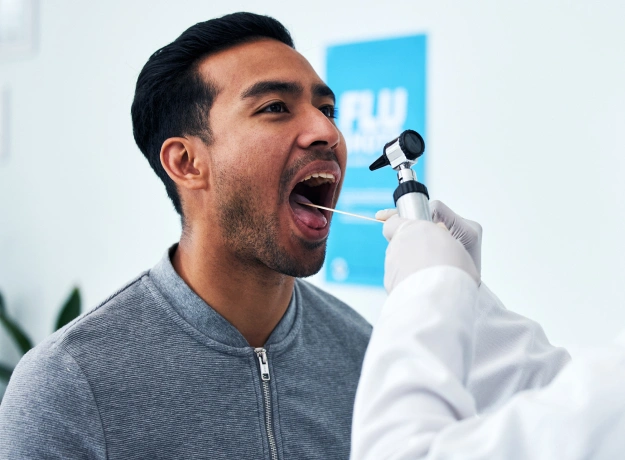
Safeguard Your Smile with Oral Cancer Screenings
At Signature Smile General & Cosmetic Dentistry, we encourage you to schedule an oral cancer screening today. If you haven’t taken this important step yet, now is the time. Oral cancer is often overlooked, with limited awareness campaigns and support for its treatment. Unfortunately, it claims one life every day in the U.S. The high mortality rate is largely due to many people not seeking treatment until the cancer has advanced. As with all cancers, early detection and intervention are key to successful treatment. The sooner potential risks or signs are identified, the better your chances of overcoming it.
Is it common to have an oral cancer screening?
Unfortunately, most people never have an oral cancer screening, which is why it often goes undetected in its early stages. At our Pineapple Walk, Brooklyn, NY dental practice, we recommend scheduling a screening as soon as possible if you’ve never had one. After that, it’s generally a good idea to have this done every six months.
What does an oral cancer screening entail?
At Signature Smile General & Cosmetic Dentistry, we carefully check for signs of abnormal tissue. Typically, we look for visible symptoms such as red or white bumps, hard lumps, rough patches, or changes in the position of your teeth. Much of the screening is done visually, but we also gently feel your cheeks and the inside of your mouth while wearing gloves. This helps us identify any unusual or hard lumps in the tissue. Remember, oral cancer can affect all areas of the mouth, so the examination is thorough. As technology continues to improve, we may use additional testing methods during your visit and will be happy to explain the process. We ensure that the test is gentle and that you remain comfortable throughout the procedure.
How often should I get an oral cancer screening?
We recommend scheduling your first exam at our Pineapple Walk, Brooklyn, NY office. Based on your individual risk factors and our evaluation, we will determine how frequently you should have screenings. For high-risk patients, we may suggest annual examinations.
Who is susceptible to getting oral cancer?
A common misconception is that oral cancer only affects older men. While men once had a 10:1 ratio of oral cancer compared to women, this gap has decreased over time. As men’s and women’s habits have become more alike, with increased alcohol consumption and smoking among women, the ratio is now closer to 2:1. Additionally, recent research has shown that certain strains of the HPV virus can also cause oral cancer, changing our understanding of who is at risk. Since HPV can be contracted as early as the teenage years, both men and women, including teens and seniors, are vulnerable to this disease. We recommend that all adults undergo oral cancer screenings, especially those who smoke, drink alcohol, or know they have the HPV virus.
Do you treat oral cancer?
At Signature Smile General & Cosmetic Dentistry, we don’t treat oral cancer, but we play a key role in detecting it early. Early detection is vital—it can literally save your life. As we are most familiar with the condition of your mouth, we are trained to recognize any abnormalities. If we spot signs that could indicate pre-cancer or cancer, we may perform a biopsy, which involves taking a small tissue sample for further testing. In some cases, we may refer you to an oncologist in the Brooklyn area for additional tests and to discuss potential treatment options.
When to Contact Us:
You can play a vital role in detecting oral cancer early. We recommend taking a few seconds after brushing your teeth to check your mouth. Simply run your tongue along your cheeks, gums, and the roof of your mouth. If you feel any rough patches, lumps, or bumps, make a note of them. Check again a few days later. If the spots were caused by an illness or something abrasive, they should disappear within a few days. If they don’t, it's important to contact our office for an oral cancer screening and exam. Another red flag to watch for is shifting teeth without an obvious cause. If your teeth are moving, it may indicate something is pushing them—sometimes that "something" is cancer.
How can I reduce my risk of oral cancer?
The most effective way to reduce your risk of oral cancer is to stop using smokeless tobacco products, as they are a major historical risk factor. While smokeless tobacco is less harmful to your lungs than cigarettes, it can increase your risk of oral cancer by up to 60 times! It's also crucial to quit smoking all tobacco products and limit alcohol consumption. While moderate drinking may not pose a significant risk, regular or heavy drinking can increase your chances of developing oral cancer. Additionally, protect your skin from sunburns by limiting sun exposure. For the HPV virus, consult your primary care doctor to see if you're a candidate for the vaccine and consider getting tested to check if you've already been exposed to the virus.